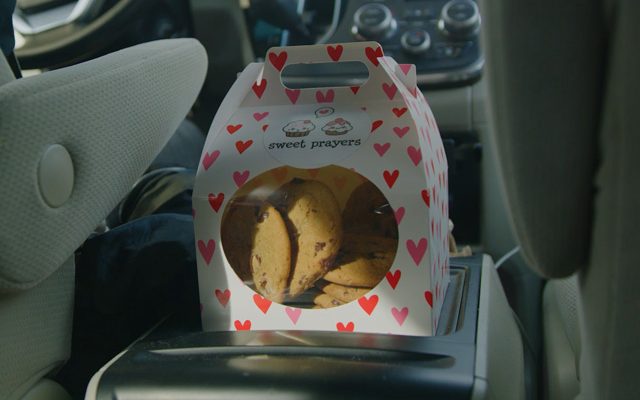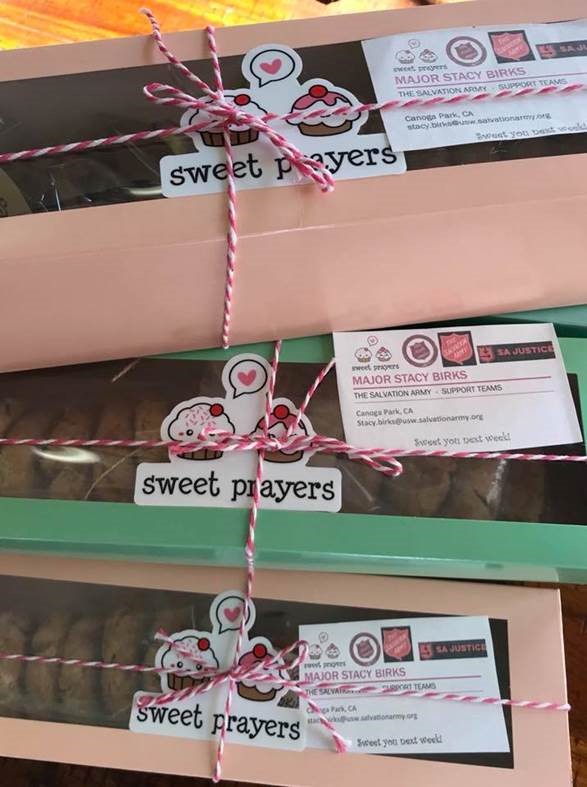A Practice of Loving Our Neighbors
Each week I sat behind Mary at the Adult Rehabilitation Center chapel. She came with her teenage daughter and newborn son to visit her husband who was in the recovery program. We would occasionally chat, and I would make googly eyes and silly noises at the baby. My heart went out to this mom. She was a stoic, petite, blonde, mom of two, who carried the weight of the world on her shoulders. She mentioned she was looking in thrift stores for a portable massage table to use in her home as she was massage therapist by trade. That’s how she met her husband. When I met her, her husband was in a treatment program for at least six months, leaving Mary to support the family on her own. Purchasing a massage table was essential for their family.
Simultaneously, my husband and I had started a new Salvation Army ministry in the same community as the Adult Rehabilitation Center. We were also working out of our home. One of the first things we did was create a “Sweet Prayers” outreach. We baked goods and in so doing established a relationship with the women working at parlors who were engaging in sexual favors. On sites such as “Rub Maps” and “Back Page,” databases that identify these parlors, we found over 40 elicit parlors in our small city alone. So, we got to work. Along with a volunteer and her newborn, my husband and I delivered homemade cookies to these massage parlors every Tuesday. My husband drove and stayed in the car praying while we went in to talk to our neighbors and show them that we loved them.
It was Easter Sunday and Mary was at the sunrise service with her husband and children. We sat across the table from each other at the pancake breakfast before the egg hunt. I asked how her massage business was going. I then brought up the “Sweet Prayers” ministry, thinking there was a connection to her occupation, and maybe she’d have some interest, or even volunteer one day. To my surprise, Mary said she used to work in an elicit massage parlor herself. Like her husband, she was a recovering addict. At a desperate time in her life, she taught the Thai massage technique to the women in the parlor. She knew the reputation of her place of work, and that men coming in for services expected more than a massage. She said she started off strong, not giving in, saying “no!” and immediately leaving the room. But, being paid cash, and the constant pressure of providing for her family, weighed on her. She really needed the work. The day came when she finally gave in to the sexual favors the men were eliciting. Whoa! I was not expecting that. Mary did not fit the stereotype of other women in her position. She was an American; her ID was still in her possession; she wasn’t trafficked, and she could leave any time she wanted. Mary was not college educated or from a privileged background, but she was a hard–working and loving mother and wife who saw no other way out of her circumstances.
This information didn’t change how I felt about Mary. It did, however, change how I approached “Sweet Prayers.” The face of my neighbors changed that day. Any one of the women we visited could be my next-door neighbor—the woman sitting in the chair in front of me at church or even the mom at the Easter egg hunt.
I haven’t seen Mary in a while because she moved and we lost touch. One thing that will always stick with me about Mary is that she was the bridge between what I had learned about women in this industry, and what their lives actually looked like. Lord, help me to continue to love you and to love my neighbor as myself (Mark 12:31).
History on “Sweet Prayers” Outreach Ministry
The practice of loving our neighbor through visiting brothels (Thai massage parlors in the Western Territory) and bringing cupcakes began in the Australia Territory. Major Danielle Strickland Court, former officer from the Canadian Territory, preached and wrote about this origin story. Some women officers in the Western Territory caught the vision and “Sweet Prayers” began to grow, initially in Santa Monica, CA led by Captain Kari Rudd, and then secondly, in Canoga Park, CA, led by Major Stacy Birks. As of 2020, 11 locations in the territory practice “Sweet Prayers” in their ministry, and many more plan on joining.
For officers interested in starting a Sweet Prayers chapter, SA Justice offers training and resources through its website.
Things to keep in mind when starting this ministry in your community:
- Pray to be light in the dark and for protection (Matthew 5:16).
- Build a like–minded team of at least three—two to visit and one to drive and stay in the car praying.
- Research—Is this ministry a need in our community?
- Plan—Who, what, why, where, when, how?
- Be consistent —every week, the same day, the same time.
- Remember names—we kept a list on my phone.
- Continue—educate yourself and team on human trafficking by reading articles, guest speakers, zoom training.
Media Information
https://www.newfrontierchronicle.org/sweet-prayers-spreads-love-through-baked-goods/
https://www.facebook.com/sweetprayerscanogapark
For more information on “Sweet Prayers” contact:
Jacqui Larsson
Territorial Social Justice Ministries Director
Email – jacqui.larsson@usw.salvationarmy.org


